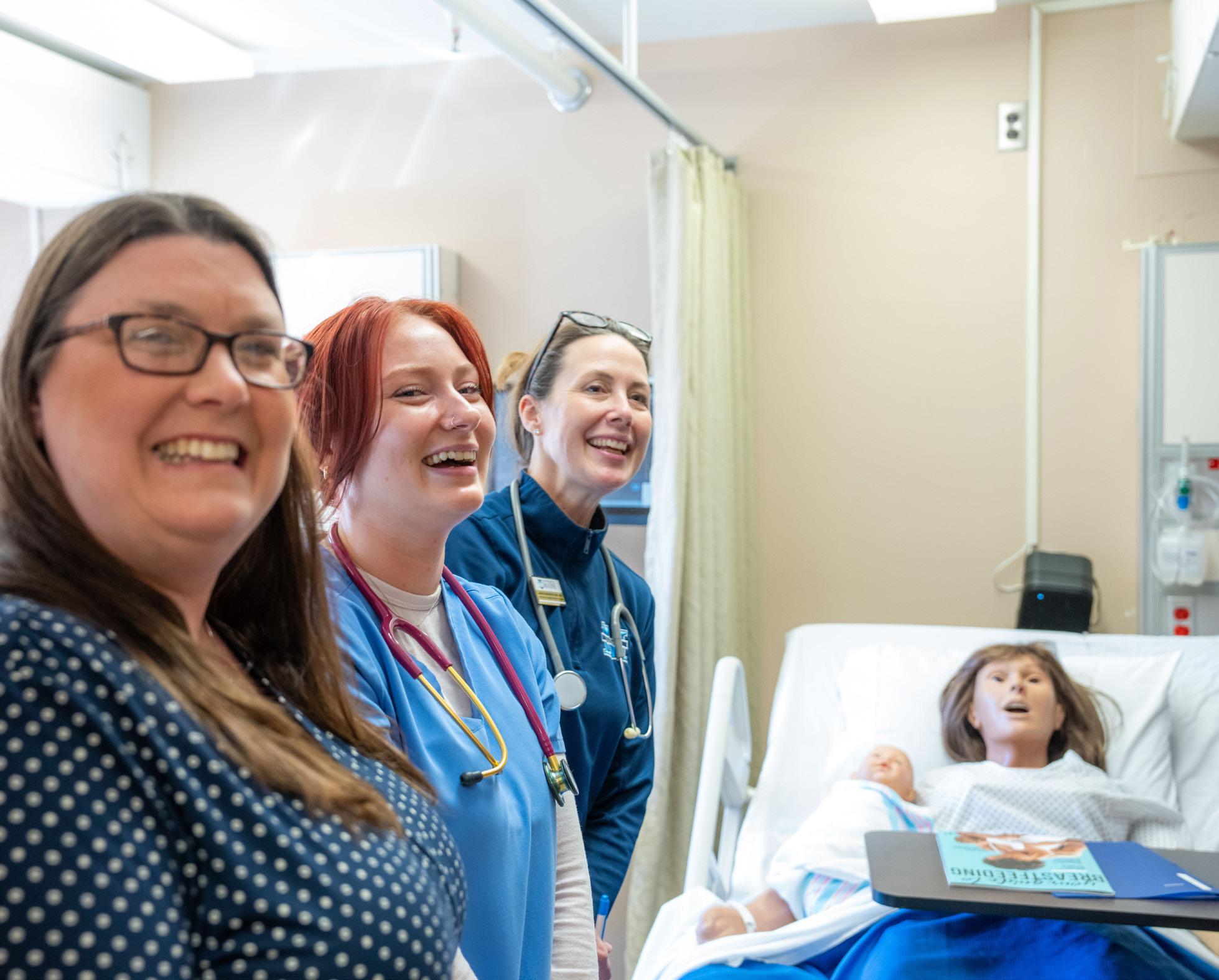
2 minute read
Research/Scholarship
GOAL:
Build infrastructure and promote transdisciplinary research/scholarship/translational science to engage undergraduate and graduate students in nursing research, evidence based and quality improvement projects and policy changes.
STRATEGIC PRIORITY (OBJECTIVE) KEY STRATEGIES/ACTIONS OUTCOME(S)
Establish standard operating procedures and programs to support professional growth of faculty.
Develop educational progression plans to ensure that all faculty have obtained the minimum master’s degree.
Develop faculty working knowledge and implementation of simulation based education
Extend continuing education opportunities/incentives for faculty
Formalize a new faculty mentoring group to promote ongoing professional development (e.g., train the trainer) in the areas of scholarship, teaching and service.
Develop onboarding process for doctoral faculty for mentorship.
Explore workload release opportunities and/or designate committee involvement.
By spring 2027, the University of Maine’s School of Nursing faculty will have a structured onboarding process that will include mentorship and formal classes.
Starting in spring 2023, all University of Maine’s School of Nursing faculty will attend one professionally relevant continuing education session (e.g., course, conference) per academic year.
Implement a new faculty mentoring group in collaboration with Office of Research Development to develop grant projects and mentorship for fall 2023.
Build infrastructure within the University of Maine’s School of Nursing to support interdisciplinary nursing research, evidence-based practice projects and scholarship.
Develop a Ph.D. program in nursing.
Establish formal interdisciplinary partnerships for research and evidence-based practice.
By 2027, the University of Maine’s School of Nursing develop a Ph.D. program in nursing with an emphasis on interdisciplinary research.
In the year 2027, The University of Maine’s School of Nursing will enroll its first cohort of Ph.D. students.
STRATEGIC PRIORITY (OBJECTIVE) KEY STRATEGIES/ACTIONS OUTCOME(S)
Engage undergraduate and graduate students from the School of Nursing and other disciplines to participate in research, evidence-based practice projects and scholarship in the School of Nursing.
Incorporate opportunities for all undergraduate graduate students to engage in research, evidencebased practice projects and quality Engage unde projects and scholarship opportunities with faculty in the University of Maine’s School of Nursing and University of Maine System (UMS) Schools of Nursing.
Collaborate with UMaine research and scholarship programs and initiatives (e.g. Research Learning Experience (RLE), Top Scholars etc) within the nursing programs.
By fall 2027, 10% of undergraduate students will be engaged in research, evidence-based practice projects, quality improvement projects and scholarship in addition to minimum curriculum expectations.
By fall 2027, 5% of masters graduate students will be engaged in research, evidence-based practice projects, quality improvement projects and scholarship to augment curriculum expectations.
Update program courses and associated activities to include structure for the generation, synthesis, translation and dissemination of nursing science.
Develop a capstone course or modules in the MSN program to guide learners through the capstone scholarship experience.
Collaborate with Honors College to develop a nursing pathway.
Reestablish and establish collaborative relationships with area research centers (e.g., Maine Medical Center Translation of Science Center, Eastern Maine Medical Center Evidence-Based Practice Center, etc.).
By May 2024, 100% graduate student thesis/capstones/research projects will be in Digital Commons.
Develop of a Honors College Nursing Pathway specifically highlighting student undergraduate nursing projects with designated nursing faculty by 2025
50% of graduates will present at either local, regional and/or national conferences.




